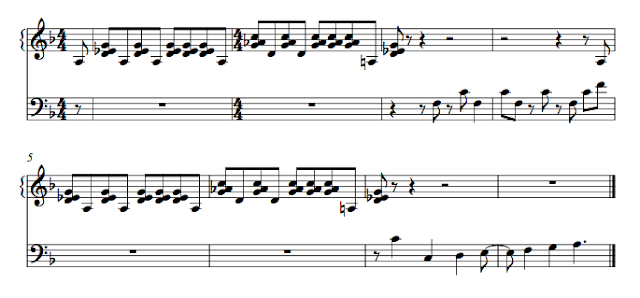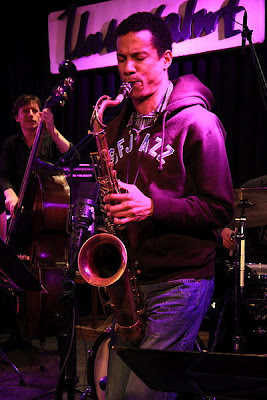Charlie Parker on "Cheryl"
.png)
On the fifth chorus of his solo on "Cheryl," Bird quotes a large portion of Louis Armstrong's famous cadenza from "West End Blues" (1928). The announcer (whom I believe to be Symphony Sid) immediately notes: "If you were listening closely there, maybe you noticed Charlie Parker's quotation from a famous Louis Armstrong introduction to 'West End Blues,' showing that sometimes the new school does borrow from the old." Bird's known for quoting plenty of material from his diverse listenings, including the piccolo obbligato from 'High Society,' but it's rare to hear him quote another contemporaneous musician at length like this. This particular recording is from a CD of a friend of mine's, called Early "Bird." Unfortunately, I don't have any other information about when this was recorded, although based on some quick online research, it's likely that this live recording is from a Sunday afternoo





+1.png)


